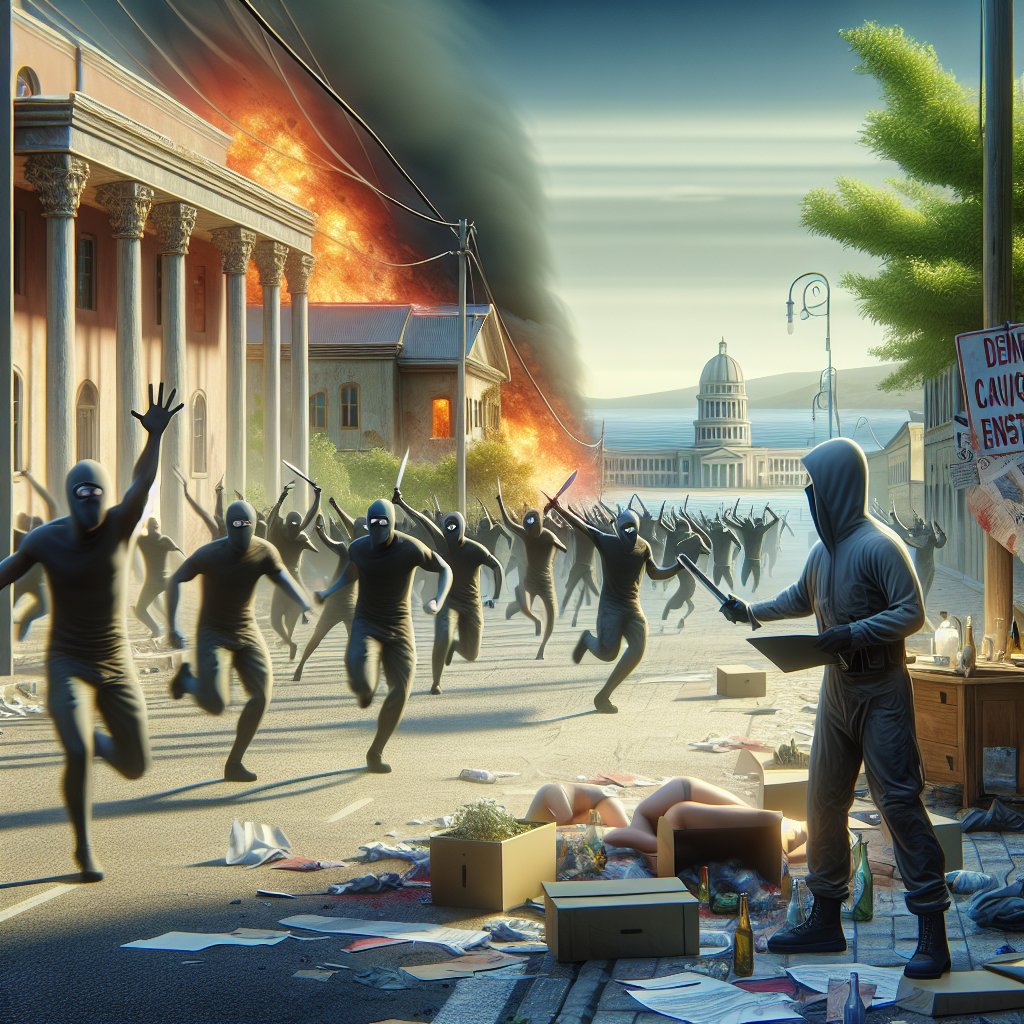Image created by AI
Britain Grapples with a Surge in Far-Right Violence Post-General Election
The United Kingdom is reeling from a virulent outbreak of far-right violence following a mass stabbing incident in Southport—an unforeseen test for newly appointed Prime Minister Sir Keir Starmer, in the immediate wake of a Labour landslide victory. Hopes for a calm transition were dashed as England was plunged into a nightmare of civil unrest and xenophobic riots that have upended the nation's relative peace.
On July 29, a tranquil seaside town witnessed a horrific act of violence when a dance class turned into a murder scene, with three young girls being fatally attacked. The gruesome event spiraled into chaos, exacerbated by far-right influencers who swiftly disseminated disinformation on the identity of the assailant. Their incendiary claims prompted mobs to exact vigilante justice, sparking virulent riots across multiple towns and cities. Fired by anti-immigrant rage and defiance of the rule of law, masked rioters engaged in pitched battles with police, immigrants, and asylum-seekers.
As Sir Keir and Home Secretary Yvette Cooper denounce these actors as a "thuggish minority," the wider problem cannot be ignored. This anti-immigrant undercurrent has been part of the UK's societal fabric for decades, notably escalated by the Brexit referendum that brought to the forefront divisive questions on immigration and national identity.
The recent Tory governance has further fanned these flames, stirring public sentiment and emboldening far-right factions. Amid dubious claims and contested narratives, the young government stands on shaky ground. As confrontations seemingly dipped in race and nationality play out in the streets, this government's challenge extends beyond restoring order; it must mend a fracturing society while rebutting criticisms of favoritism in their wielding of power.
The path to rebuilding a more unified Britain is steep, contending with economic disparities that fan the flames of discontent. The correlation between deprived areas and riot occurrences underscores an urgent need for growth that benefits all strata of society.
Immediate actions have begun to reshape the narrative—with numerous arrests leading to prosecutions—yet it remains a moment of introspection for all of Britain, a caution against the dangers of rhetoric morphing into reality. British society now stands at a critical juncture, requiring an inclusive and strategic response to ensure true reconciliation and lasting peace.










